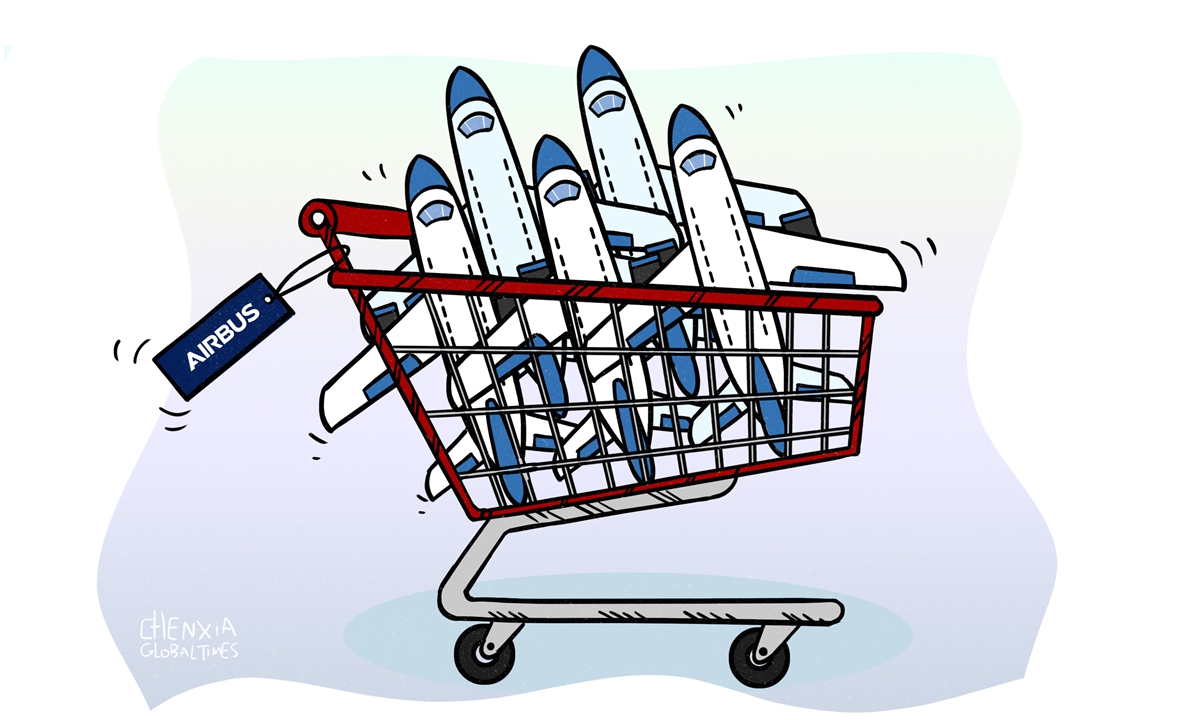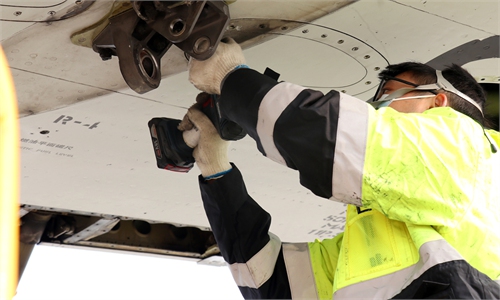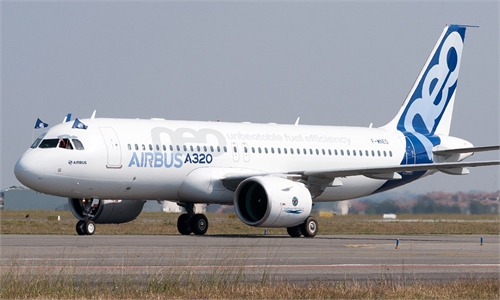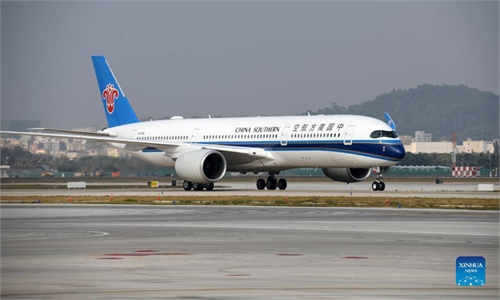
Illustration: Chen Xia/Global Times
Three major Chinese airlines' Friday announcement of a massive 292 plane order from European plane manufacturer Airbus has attracted widespread attention in the West. In the context that global aviation sector has been hammered by the COVID-19 pandemic and the European economy continues to grapple with surging inflation, the $37 billion deal, one of the largest for Airbus, is not only of great significance for the company, also, as Reuters said, is "a breakthrough for Europe."The equal and mutually beneficial deal demonstrates that China and the EU have a solid foundation and good prospects in aviation cooperation. Aviation cooperation involves trade and industrial investment. It is also a comprehensive and systematic cooperation involving science and technological domain.
Another background of the deal is that there have been some political differences between China and the EU in recent years, and these differences seem to have created some negative impacts on the normal economic and trade cooperation between the two sides. Now, Europe faces a question: should it continue to let political differences affect normal economic and trade cooperation?
In fact, in an ideal state, China-EU cooperation in various fields should be mutually reinforcing. Good diplomatic relations should promote the deepening of economic and trade cooperation. Better economic and trade cooperation should also curb the deterioration of differences in the political arena. On the issue of handling relations with China, the European side needs to have balanced considerations, and cannot let the zero-sum game thinking affect the cooperation in economy, trade and other fields.
However, since 2016, there have been some changes in Europe's relations with China. The US has been trying to persuade Europe to jointly contain China. Out of its own strategic interests, the US keeps instilling negative views on China in Europe. In addition, the rise of populism in Europe is also making China a target when it shifts internal contradictions outward. In this context, some European politicians have sacrificed economic and trade cooperation with China to a certain extent in order to compromise with the US or pursue internal political interests.
In recent years, the European side has become increasingly reluctant to put aside differences, and instead use some issues to create problems to interfere with practical economic cooperation. For example, some politicians began to raise the so-called human rights standard. Now, there are even some voices in Europe are following the US and discussing economic decoupling from China, hyping over-reliance on the Chinese market and other issues.
The Airbus deal shows that the discussion about decoupling, or not accepting economic and trade interdependence with China, is an illusion that goes against the rules of the economy and the market. The economic interdependence of the two sides is a product of globalization, and it is still vital today. The unreasonable decoupling voice are lack of supports, Europe should not jump into the pit the US has dug for it.
China's economy will be more open, and Europe is likely to be one of the most direct beneficiaries. Both the Chinese and European economies have now reached a very critical stage, and cooperation should be further strengthened. It is time for Europe to think about how to improve its policy toward China.
First, the economic and trade interdependence between China and Europe and the division of labor in the current global industrial chain is what Europe has vigorously promoted. Europe should not artificially destroy the basis of economic and trade cooperation and should use market rules and principles to solve problems and challenges in bilateral trade.
Second, Europe should find where its own interests are. Now even the US finds that an approach like the former Trump administration's decoupling of China's economy and technology is proving unworkable. For Europe, if it wants to completely replace market principles with political principles, the costs will be even higher.
Third, China has always been a constructive force for peace, development and cooperation. In fact, China and the EU have a lot of agreement on this issue. In order to expand interests, both China and the EU are willing to use a peaceful, fair and reasonable competition way, rather than creating conflicts. Europe should be more aware of who is its true and trusted partner in today's world.
The author is director of the Department of European Studies, China Institute of International Studies. bizopinion@globaltimes.com.cn



